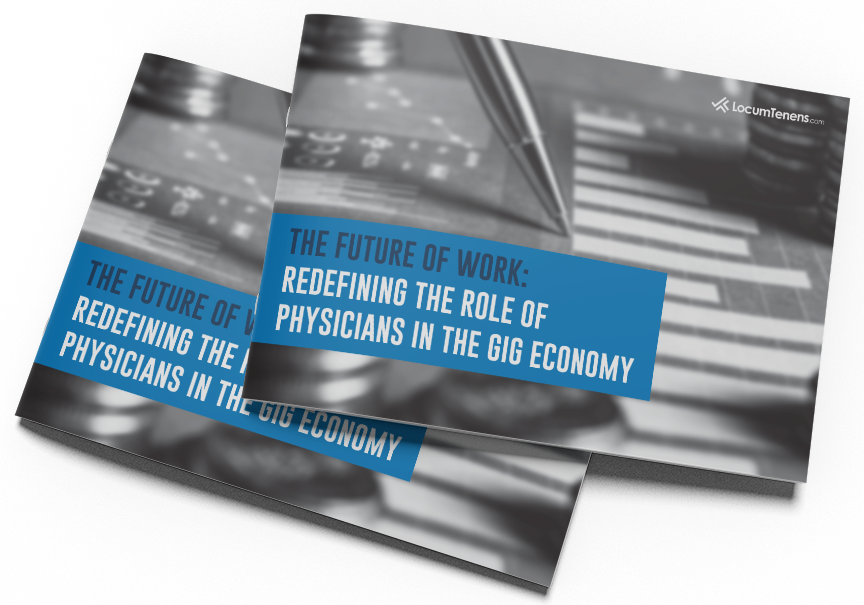The Gig Economy is catching up with healthcare and shaping the future of work. There is no denying that the pandemic exacerbated burnout, leading to early retirement in healthcare. However, the rapid growth of the Gig Economy is not merely a response to the pandemic. It is the culmination of significant changes in the healthcare industry.

Physicians are strained
Physicians are leaving traditional full time, employed roles in large numbers. They report increasing levles of frustration and burnout, leading them to seek other opportunities.

Desire for flexibility
Physicians cite patient load and schedule inflexibility as most common dissatisfiers. By empowering physicians to own their schedule, hospital administrators may be able to stem the tide of burnout.

New opportunities
The gig econmy has caught up with healthcare. Physicians are looking beyond traditional roles to find career opportunities, including non-clinical and locum tenens roles.
Physician Market at a Glance
Today, the shortage and its effects are exacerbated by the early retirement trends. Physicians are retiring or stepping away from direct patient care at a faster rate than ever before. This will have a marked impact on the healthcare industry and patient care.
Eighty one percent of surveyed physicians are currently practicing medicine and providing direct patient care. Of those physicians, only half are employed full time. Now, more than ever before, clinicians have many opportunities beyond traditional patient care roles.
Leaving the Workforce Early and Often
Healthcare practitioners are getting older and leaving the industry at a staggering rate, in many cases well before traditional retirement age. With an industry that is already dealing with staffing shortages and difficulties in meeting access goals, the demographics are not encouraging. More clinicians are retired than practicing.
Clinicians are not practicing at younger ages. Of those clinicians not practicing, 11% are under 40; 12% are in their 40s; and 15% are in their 50s. These age ranges are traditionally seen as peak earning periods for physicians, but the data shows a growing reluctance to practice medicine in a traditional setting, despite a significant educational and financial investment. Clinicians in their 40s are retiring early. Once in their 60s (even early in the decade), more clinicians are retired than practicing.
Work status

Top areas of Dissatisfaction

Of those surveyed, 19% of respondents claimed to be dissatisfied with their current position. The contributing factors speak volumes to the current state of physician workloads in today’s healthcare environment.
It’s notable that the second most common complaint involves medical practice and hospital leadership. A clear opportunity exists to make inroads between leadership and clinicians.”
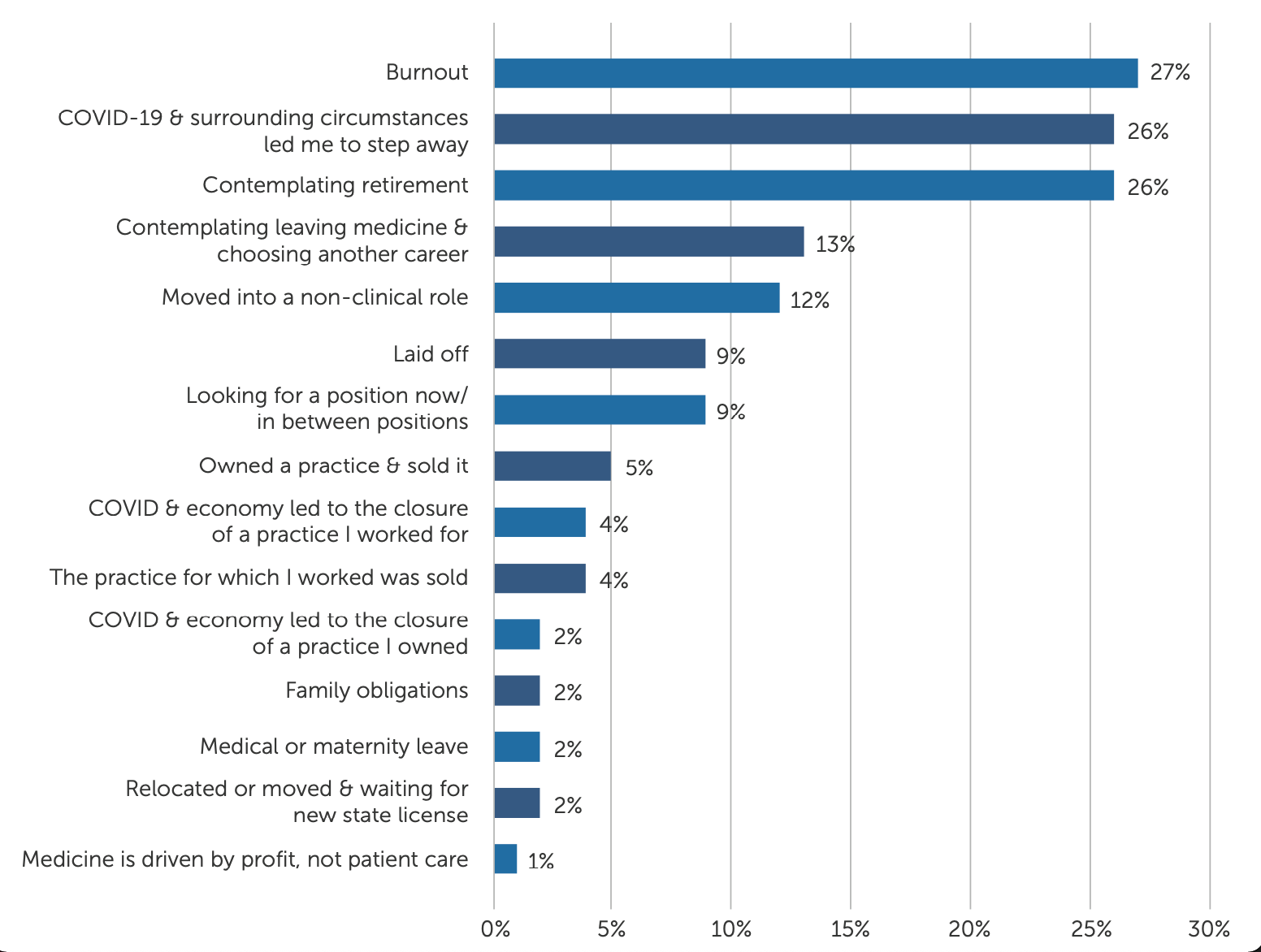
Battling Burnout
There are levels of burnout that determine the likelihood of deciding to step away from the profession.
- 40% of clinicians self-reported that they were at least moderately burned out. With 17% of respondents saying, “significantly or completely burned out.”
- 71% of contractors and locum tenens clinicians reported “little to no burnout.”
- 88% agreed that alleviating scheduling pressures would make a positive impact on their level of burnout.
Reducing burnout should be a priority for facilities aiming to improve retention.
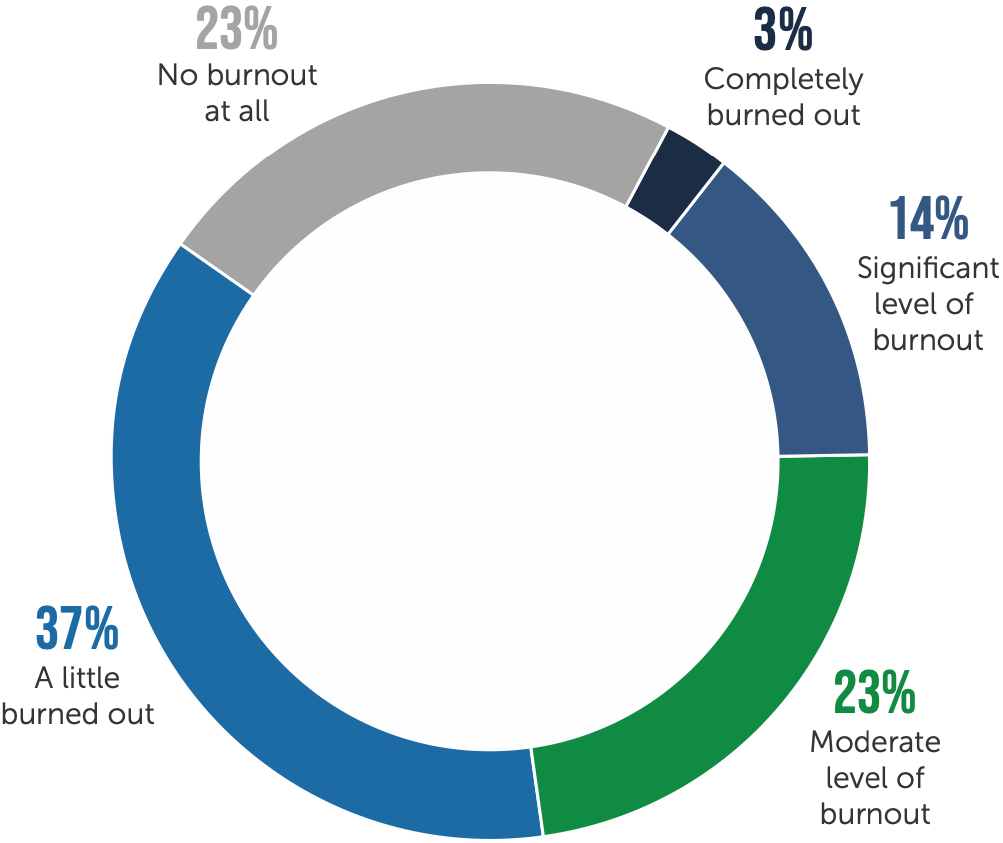
Looking for New Opportunities
With physician job satisfaction rates historically low and levels of burnout high, we are seeing more physicians look for new opportunities. Of those physicians who are currently practicing, 61% said they are likely to look for a new position within the next year.
What will it take to reach a sustainable staffing model for the healthcare industry? Read more at our report, Innovation & Flexibility: The Journey to Sustainable Healthcare.
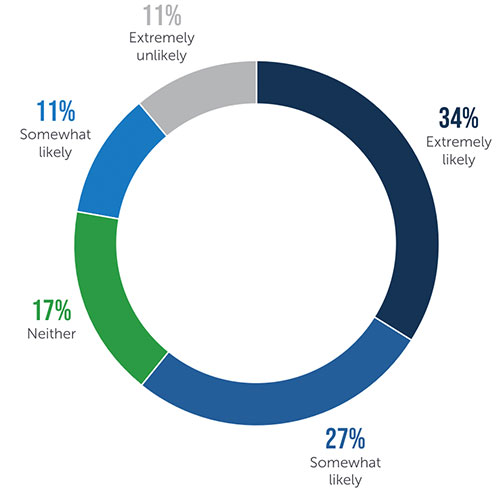
New Opportunities, New Types of Employment
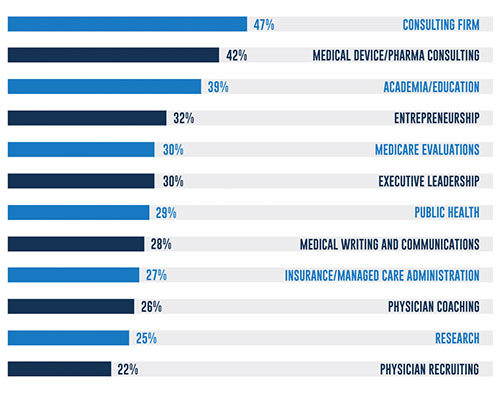
Physicians are changing the conversation and creating new roles that fit within a new understanding of work. Healthcare is an extremely conservative industry that is slow to make large scale change, but physicians are taking the reins and creating new opportunities.
Technology and industry disruptors have led to non-clinical and non-patient facing careers for many physicians. By looking beyond traditional patient-care roles, physicians are redefining what it means to be a doctor. When asked, only 20% of practicing clinicians said they would not consider non-clinical work.
Growth of Non-Traditional Clinical Roles
Even physicians who want to stay in a direct patient-care role have more options in today’s healthcare environment. Technology has opened the landscape to treat patients virtually or travel to new locals and communities.
Telehealth has been a growing trend even before the pandemic, which amplified its popularity with patients and physicians alike.
Would like to Pursue Opportunities to Work More Hours Virtually Via Telehealth
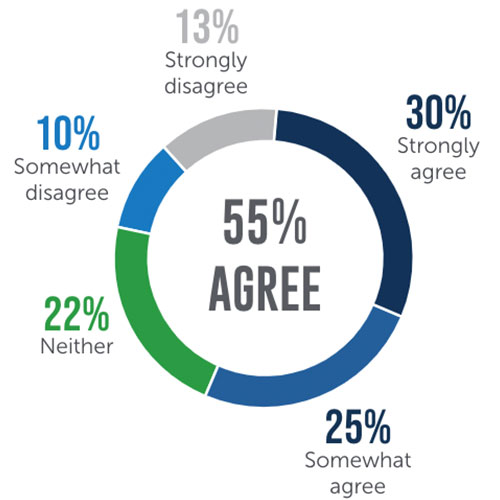
Reasons for Interest in Telehealth
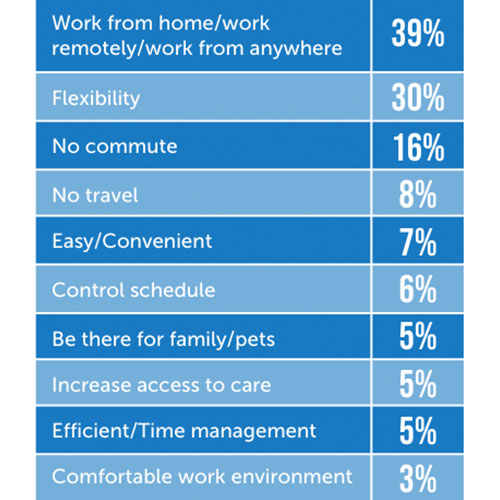
APPs: Different Goals, Different Career Paths
When we look at direct patient care roles, APPs are more closely aligned with physicians on expectations and career steps, but there are some differences. Overall, APPs are more likely to be looking for new practice opportunities or positions. In addition, APPs are more likely to be interested in working locum tenens locally in the area where they live.
APPs have become a critical component of the care continuum. It is important to create strategies that support their needs in order to boost recruitment and retention strategies to ultimately drive more access and better outcomes for patients.
Rising Interest in Locum Tenens
With a growing interest in locum tenens work, it is interesting to look at what specialties are gaining the most interest for locums work.
Have Interest in Local Contract Work
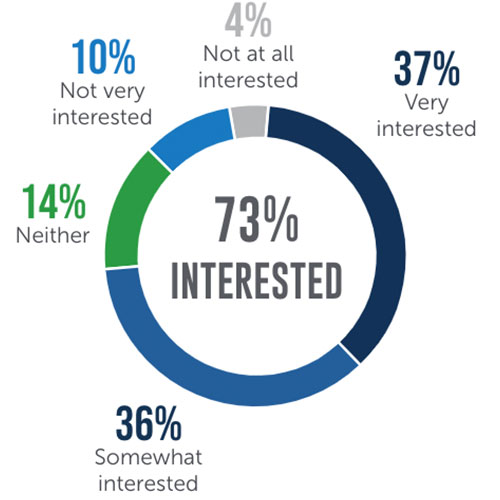
Have Interest in Travel Locum Tenens Work
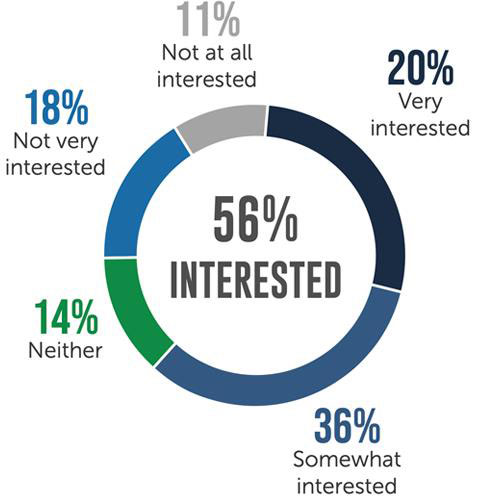
In their own words
"Initially, I considered it but to be declassee, but have learned that it provides much needed services, while allowing better management of my quality of life."
"I like the freedom of controlling how much/when/where I work."
"I think overall the quality of locum tenens performances have improved significantly over the years. 10 years ago, you thought of locums as people who might not be able to find jobs elsewhere. Now they are seen as competent providers who are trying to navigate their career in a way that works best for them."
"It's a good way of getting to know a place or a practice before moving/ joining."
"Good transition for older physicians before retiring. Also helpful for younger docs to check out a practice situation before committing to a permanent position."
"Mostly favorable. Potentially challenging due to working in different systems and electronic health records and variable degree work volumes and collegial support."
"Unpredictable. Rewarding. Intriguing. Too much paperwork."
"Absolutely essential to run services and will be more needed in future as there seems to be a scarcity of physicians."
